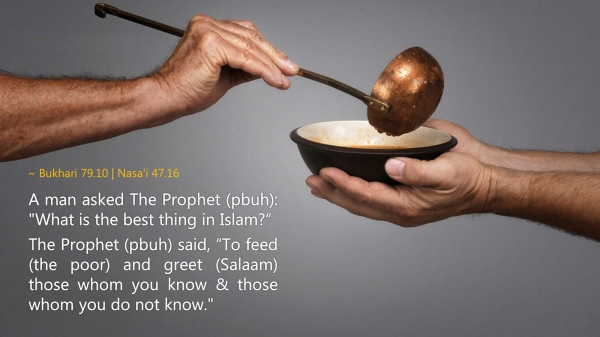
Photo IslamiCity
‘Desirable’ Muslims
By Nikhat Sattar
“I went to the West and saw Islam, but no Muslims; I got back to the East and saw Muslims, but not Islam.” Thus said the great reformist Egyptian scholar, Muhammed Abduh, during the late 19th century.
This holds so true, more than 150 years later, even though Muslims possess innumerable mosques and madrassahs, all supposedly imparting religious education. Men wear skullcaps and sport long flowing beards, with above-the-ankle trousers and long shirts. Women, even girls while still toddlers, don long abayas, hijabs and burqas. Religion overwhelms every aspect of life, quotations from ahadith abound, charity, prayers, fasts, Umrah and Haj dominate Muslim lives. Religious processions are frequent. Shrines are thronged with devotees.
One would then expect religion to be manifest in their habits, attitudes, professional and social dealings, relationships and interactions with each other and the rest of the world. Unfortunately, dishonesty, lies, greed, financial corruption, violence and a lack of concern for God’s creations pervades Muslim populations.
If Muslims strive to be close to God, what does God expect from Muslims?
A Muslim is honest and by the same virtue, truthful, even if the truth hurts them and their kin. Honesty with oneself means assessing one’s mistakes truthfully and since the Muslim aspires to be loved by God, they strive to improve their character. Honesty with others covers the whole gambit of financial dealings, giving evidence, never engaging in gossip or abusing others, accepting one’s mistakes and abiding by the law.
A Muslim is trustworthy and reliable, keeping promises once made and ensuring all commitments are met in letter and spirit. This ranges from being punctual for even the smallest of tasks, to meeting financial, social, legal and other obligations. With trust and reliability a characteristic of people, courts would dispense justice in time, transport systems would run punctually, national and international agreements would be implemented in their true spirit and a massive wastage of time and money prevented.
Muslims are merciful, kind, thoughtful of others’ needs, and avoid harming anyone or anything. They seek peace and harmonious living with others and actively engage in resolving any conflicts that may arise. They possess empathy, good manners, never share another’s secrets and never make false accusations. A violence-free, supportive environment would be ensured for all citizens; false cases and false witnesses would not exist, nor would any sort of road rage. People would be free to practice any religion, faith or belief without fear and there would be openness and freedom in society. Everyone would be educated and intellect, creativity and innovation would reign. Humans, animals, and the environment would be protected as far as possible.
A Muslim is fair and just. They hone their God-given ability to distinguish right from wrong and choose the right path as much as they can. When endowed with power and governance, they provide succor to the wronged and dispense justice without consideration of anyone’s status or social standing. In such a society, if a person is oppressed, whether for their wealth, personal matters or in freedom of speech, the Muslim would always provide quick redress and atonement for any harm endured as well as punishment to the oppressor, even if the latter is the ruler.
A Muslim would make efforts towards enhancing their taqwa (piety). They are humble and always think better of others. This humility creates a continuous urge to improve one’s own spiritual self, avoiding the love of ostentation, showmanship, bragging and living a life of simplicity, always trying to do good and repelling evil, in thought and deed. They both love and fear God; love because He is the Creator and fear lest they incur His displeasure. They strive to lead a life with guidance from God and keep a constant watch over their tongue, mind, and body. There are over 200 places in the Qur’an that mention taqwa and its importance. A taqwa-oriented society fears no one but God and is free from display of wealth and pomp.
Muslims keep their soul, body, and environment clean, are chaste and shun any immoral behavior. They are decent in attire, simple and soft-spoken and avoid the company of loud and aggressive people. They discourage immodesty and immorality. Sexual harassment would be minimum and dealt with immediately and harshly, and women and children would enjoy freedom of movement. Garbage produced would be recycled by such Muslims and towns, cities and villages would be clean.
A Muslim would also be prompt and focused in prayers, fasting, giving alms, performing Umrah and Haj.
Are we Muslims in any way, except the last?
(The writer is an individual contributor with an interest in religion. Dawn)

